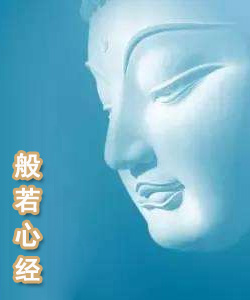弟子规全文中文英文对照版(4)
勿箕踞。勿摇髀。
Do not sit sprawled all over the floor. Or wriggle and squirm when you walk.
I will not sit with my legs apart or sprawled out.
I will not rock the lower part of my body while standing or sitting down.
缓揭帘。勿有声。
When closing a door best be careful,
Do it slowly without too much noise.
I will always lift the curtain slowly,
and quietly.
宽转弯。勿触棱。
Whenever crossing a room,
Don’t bump into the table and chairs.
I must leave myself ample space when I turn
so I will not bump into a corner.
执虚器。如执盈。入虚室。如有人。
You should carry an empty container, Just as carefully as one that is full.
And enter a room that is empty, As you would if a crowd were inside.
I will hold empty containers carefully
as if they were full.
入虚室。如有人。
And enter a room that is empty, As you would if a crowd were inside.
I will enter empty rooms
as if they were occupied.
事勿忙。忙多错。
There is no need to be in a hurry.
If you rush you will make a mistake.
I will avoid doing things in a hurry,
as doing things in haste will lead to many mistakes.
勿畏难。勿轻略。
Don’t be afraid of what’s hard,
And don’t be careless with what is easy.
I should not be afraid of difficult tasks,
and I will not become careless when a job is too easy.
斗闹场。绝勿近。
Never go to rowdy places,
Or places where people are fighting.
I will keep away from rowdy places.
邪僻事。绝勿问。
When something is low and improper
It’s not worth your talk or your questions.
I will not ask about things that are abnormal or unusual.
将入门。问孰存。
When you’re going to enter a room,
First knock to make sure it’s permitted.
When I am about to enter a main entrance,
I must first ask if someone is inside.
将上堂。声必扬。
When joining a gathering of people,
Let them all know you’ve arrived.
Before entering a room,
I must first make myself heard, so that those inside know someone is approaching.
人问谁。对以名。
If someone should ask who you are,
You should answer by giving your name.
If someone asks who I am,
I must give my name.
吾与我。不分明。
If you respond, “It is me,”
You ’re not giving a proper reply.
To answer ‘It is me’ or ‘Me’
is not sufficient.
用人物。须明求。
If you use someone else’s belongings,
Be sure that you ask for permission.
Before borrowing things from others,
I must ask for permission.
倘不问。即为偷。
If you don’t get the owner’s permission,
Then stealing is what you have done.
If I do not ask,
it is stealing.
借人物。及时还。后有急。借不难。
If you must borrow something from another, Make sure you return it on time.
If someone asks you for something, Loan it to them as soon as you can.
When borrowing things from others,
I will return them promptly.
后有急。借不难。
If someone asks you for something, Loan it to them as soon as you can.
Later, if I have an urgent need,
I will not have a problem borrowing from them again.
第四章 信
Chapter 4 On Being Honest
Chapter 4 Be Trustworthy
凡出言。信为先。
Whatever it is that you say,
You should speak so that you can be trusted.
When I speak,
honesty is important.
诈与妄。奚可焉。
Tell the truth so others can believe you.
To lie is against human nature.
Deceitful words and lies
must not be tolerated.
话说多。不如少。
To talk just a little is better
Than to chatter non-stop all day long.
Rather than talking too much,
it is better to speak less.
惟其是。勿佞巧。
Talk only about what you’re sure of;
Avoid cunning or flowery words.
I will speak only the truth,
I will not twist the facts.
奸巧语。秽污词。
Don’t use words to be mean and cruel,
Or speak about things that are coarse.
Cunning words,
foul language, and
市井气。切戒之。
Let your language be pure and correct.
Stay away from all that’s unworthy.
philistine habits
must be avoided at all costs.
相关文章:
相关推荐:




